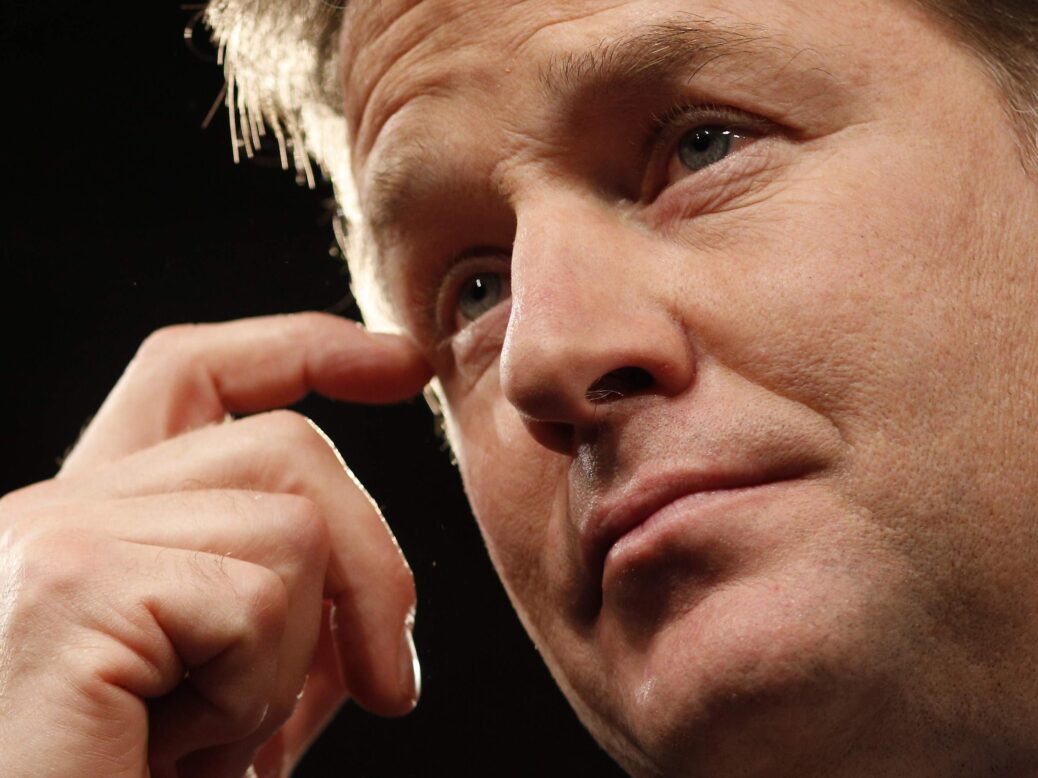
It started very badly for the Lib Dems. The Deputy Prime Minister Nick Clegg decided to extract himself from the Autumn Statement’s difficult questions by dismissing George Osborne’s economic plans as “complete and utter nonsense”. Taking the easy route – what is known by political tacticians as “differentiation” but actually amounts to “diversion” – Clegg decided not to take any ownership of the upcoming pre-budget announcements when questioned on the BBC’s Today programme on Monday, instead condemning the Chancellor for trying to balance the books “on the backs of the working-age poor”.
This is the Deputy Prime Minister, who has a key ally, Danny Alexander, in the heart of the Treasury. A Deputy Prime Minister whose own and party’s reputation have been battered almost to breaking point over entering government so as to make joint difficult decisions with their senior coalition partners. And he began the week of the Autumn Statement, effectively the last meaningful fiscal announcement before the general election, undermining the sacrifice he and his party have made.
It didn’t get much better throughout the week. Clegg was notably not present during the Chancellor’s Autumn Statement and David Cameron’s preceding PMQs session yesterday afternoon. He was wandering around Cornwall instead.
He said he had, “spent weeks negotiating and agreeing the Autumn Statement”, so why should he have been there if he’d heard it all before? Well, precisely for that reason. Government ministers should take ownership of their decisions, show a united front. It’s clear Clegg’s absence was an effort not to be associated with the big, bad axemen Osborne and Cameron. “Differentiation” in this instance became simply “taking flight”.
And then there were his fellow Lib Dem ministers. Alexander, the Chief Secretary to the Treasury, did the media rounds, and rightly so, but briefings against him were soon fired out: the Telegraph reported that Business Secretary Vince Cable had “erupted” at Alexander for allowing the Lib Dems to agree to Osborne’s spending cuts. Cable himself went on the record to denounce Osborne “brutally” trying to cut the deficit, calling his future cuts programme “simply not realisable”. In a highly political intervention, he has also asked the Office of Budget Responsibility to outline the difference between Tory and Lib Dem economic policymaking.
What is telling about the Lib Dems’ response is how easily the media and the public has accepted a brutally swift coalition break-up in everything but name. Clegg’s comments on Today would have been a huge news story just a year ago. Now, we expect Clegg and Cameron to attack each other’s parties and policy proposals.
But more politically significant is that the Lib Dems have revealed themselves as bitter and disloyal coalition partners. What is really in it for them to do this? Yes, they have lost a huge amount of support by entering a coalition, but they are unlikely to scrape this back in five months by avoiding parliament set-pieces or saying a few nasty things on the radio about the Chancellor. Surely the pragmatic approach, if the party is to achieve its ambition of being the kingmaker, or having some form of influence, in May 2015, is to show how effectively it has worked in coalition. Not run from it at a time when the prospect of forming successful future alliances matters most.





